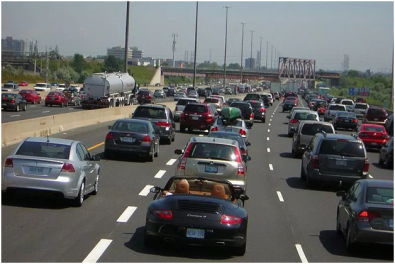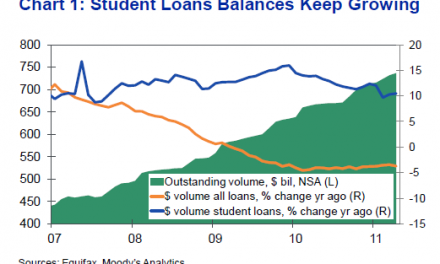 By Diane Swanbrow – The University of Michigan
By Diane Swanbrow – The University of Michigan
ANN ARBOR, Mich.—Consumer confidence slipped in July, according to University of Michigan economist Richard Curtin, director of the Thomson Reuters/University of Michigan Surveys of Consumers.
All of the overall decline was in how consumers viewed future prospects for the national economy. The Surveys, conducted by the U-M Institute for Social Research, have been monitoring consumer attitudes and expectations for over 60 years.
“The good news is that consumers do not expect the economic slowdown to prompt an economy-wide recession; the bad news is that consumers do not expect the pace of economic growth to revive job and income prospects,” Curtin said. “Consumers never willingly choose to lower their aspirations; that change is slowly forced on them by unrelenting adversity.
“The greatest concern to consumers is that wage and job growth will remain depressed in the foreseeable future, and that these meager gains are likely to be diminished in the years ahead by rising taxes and benefit cutbacks.”
Personal Finances Remain Negative
Nearly half of all consumers reported in July that their finances had recently worsened, with equal numbers attributing the decline to lower incomes and to higher prices. Complaints about rising prices have shifted from gas to food prices. Just 10 percent of all consumers expected any inflation-adjusted gains in their incomes in the next year, and just 22 percent thought there was a better than even chance of real income gains over the next five years.
“Consumers expect continued economic stagnation since they believe that current economic policies are incapable of solving the problems facing the economy,” Curtin said. “While politicians continue their semantic posturing about how and when the fiscal cliff will be bridged, consumers have begun to take precautionary steps.
“Although politicians understand that no consumer likes this game of chicken, they have pinned their political hopes on the other party being blamed, while ignoring the economic consequences of inaction. Even a temporary extension would decrease the impact of uncertainty on consumer spending in the second half of the year.”
Job Growth Expected to Slow
News of recent economic developments heard by consumers has grown more negative in the past few months, with about half as many reports of job gains in the past two months (18 percent, down from 34 percent). The national unemployment rate was expected to increase on balance in both June and July, following expected declines in the prior four months. Importantly, in the July survey half expected no change in the jobless rate during the year ahead.
Consumer Sentiment Index
The Sentiment Index was 72.3 in the July 2012 survey, just below last month’s 73.2 but substantially above last July’s 63.7. Last year’s level was depressed in reaction to the debt ceiling debate. The July loss was concentrated in the Expectations Index, which fell to 65.6 in July from 67.8 in June, but it was well above last year’s 55.9. The Current Conditions Index improved to 82.7 in July from 81.5 in June, and last year’s 75.7. The gain was largely due to consumers’ reports of greater price discounting on durables.
—–
The Survey of Consumers is a rotating panel survey based on a nationally representative sample that gives each household in the coterminous U.S. an equal probability of being selected. Interviews are conducted throughout the month by telephone. The minimum monthly change required for significance at the 95 percent level in the Sentiment Index is 4.8 points; for Current and Expectations Index, the minimum is 6.0 points.
Surveys of Consumers http://press.sca.isr.umich.edu
Established in 1949, the University of Michigan Institute for Social Research is the world’s largest academic social science survey and research organization, and a world leader in developing and applying social science methodology, and in educating researchers and students from around the world.
ISR conducts some of the most widely cited studies in the nation, including the Thomson Reuters/University of Michigan Surveys of Consumers, the American National Election Studies, the Monitoring the Future Study, the Panel Study of Income Dynamics, the Health and Retirement Study, the Columbia County Longitudinal Study and the National Survey of Black Americans.
ISR researchers also collaborate with social scientists in more than 60 nations on the World Values Surveys and other projects, and the institute has established formal ties with universities in Poland, China and South Africa.
ISR is also home to the Inter-University Consortium for Political and Social Research, the world’s largest digital social science data archive. For more information, visit the ISR website at www.isr.umich.edu.







